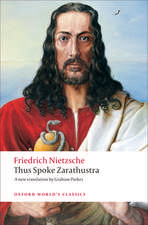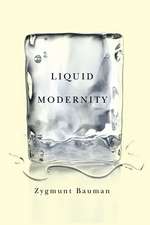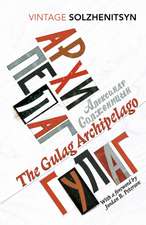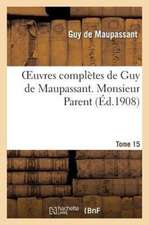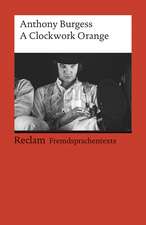The Jungle: Political Novel
Autor Upton Sinclairen Limba Engleză Paperback – 30 dec 2020
The Jungle
The Exploitation of Immigrants in the United States
by Upton Sinclair
The main character in the book is Jurgis Rudkus, a Lithuanian immigrant trying to make ends meet in Chicago. The book begins with his and Ona's wedding feast. He and his family live near the stockyards and meatpacking district, where many immigrants work who do not know much English. He takes a job at Brown's slaughterhouse. Rudkus had thought the US would offer more freedom, but he finds working conditions harsh. He and his young wife struggle to survive. They fall deeply into debt and are prey to con men. Hoping to buy a house, they exhaust their savings on the down-payment for a sub-standard slum house, which they cannot afford. The family is evicted after their money is taken.
Rudkus had expected to support his wife and other relatives, but eventually all - the women, children, and his sick father - seek work to survive. As the novel progresses, the jobs and means the family uses to stay alive slowly lead to their physical and moral decay. Accidents at work and other events lead the family closer to catastrophe. One injury results in Rudkus being fired; he later takes a job at Durham's fertilizer plant. The family's hardships accumulate as Ona confesses that her boss, Connor, had raped her, and made her job dependent on her giving him sexual favors. In revenge, Rudkus attacks Connor, resulting in his arrest and imprisonment.
After being released from jail, Rudkus finds that his family has been evicted from their house. He finds them staying with relatives, where Ona is in labor with her second child. She dies in childbirth at age eighteen from blood loss. Rudkus had lacked the money for a doctor. Soon after, his first child drowns in a muddy street. Rudkus leaves the city and takes up drinking. His brief sojourn as a hobo in rural United States shows him that there is really no escape - farmers turn their workers away when the harvest is finished.
Rudkus returns to Chicago and holds down a succession of laboring jobs and as a con-man. He drifts without direction. One night, he wanders into a lecture being given by a Socialist orator, where he finds community and purpose. A fellow socialist employs him, and he resumes his support of his wife's family, although some of them are damaged beyond repair. The book ends with another socialist rally, which follows some political victories.
Preț: 59.33 lei
Nou
11.35€ • 12.14$ • 9.47£
Carte disponibilă
Livrare economică 27 martie-10 aprilie
Specificații
ISBN-10: 8027309867
Pagini: 208
Dimensiuni: 150 x 228 x 15 mm
Greutate: 0.29 kg
Editura: e-artnow
Notă biografică
Extras
It was four o’clock when the ceremony was over and the carriages began to arrive. There had been a crowd following all the way, owing to the exuberance of Marija Berczynskas. The occasion rested heavily upon Marija’s broad shoulders—it was her task to see that all things went in due form, and after the best home traditions; and, flying wildly hither and thither, bowling every one out of the way, and scolding and exhorting all day with her tremendous voice, Marija was too eager to see that others conformed to the proprieties to consider them herself. She had left the church last of all, and, desiring to arrive first at the hall, had issued orders to the coachman to drive faster. When that personage had developed a will of his own in the matter, Marija had flung up the window of the carriage, and, leaning out, proceeded to tell him her opinion of him, first in Lithuanian, which he did not understand, and then in Polish, which he did. Having the advantage of her in altitude, the driver had stood his ground and even ventured to attempt to speak; and the result had been a furious altercation, which, continuing all the way down Ashland Avenue, had added a new swarm of urchins to the cortège at each side street for half a mile.
This was unfortunate, for already there was a throng before the door. The music had started up, and half a block away you could hear the dull “broom, broom” of a ’cello, with the squeaking of two fiddles which vied with each other in intricate and altitudinous gymnastics. Seeing the throng, Marija abandoned precipitately the debate concerning the ancestors of her coachman, and, springing from the moving carriage, plunged in and proceeded to clear a way to the hall. Once within, she turned and began to push the other way, roaring, meantime, “Eik! Eik! Uzdaryk-duris!” in tones which made the orchestral uproar sound like fairy music.
“Z. Graiczunas, Pasilinksminimams darzas. Vynas. Sznapsas. Wines and Liquors. Union Headquarters”—that was the way the signs ran. The reader, who perhaps has never held much converse in the language of far-off Lithuania, will be glad of the explanation that the place was the rear-room of a saloon in that part of Chicago known as “back of the yards.” This information is definite and suited to the matter of fact; but how pitifully inadequate it would have seemed to one who understood that it was also the supreme hour of ecstasy in the life of one of God’s gentlest creatures, the scene of the wedding-feast and the joy-transfiguration of little Ona Lukoszaite!
She stood in the doorway, shepherded by Cousin Marija, breath- less from pushing through the crowd, and in her happiness painful to look upon. There was a light of wonder in her eyes and her lids trembled, and her otherwise wan little face was flushed. She wore a muslin dress, conspicuously white, and a stiff little veil coming to her shoulders. There were five pink paper-roses twisted in the veil, and eleven bright green rose-leaves. There were new white cotton gloves upon her hands, and as she stood staring about her she twisted them together feverishly. It was almost too much for her—you could see the pain of too great emotion in her face, and all the tremor of her form. She was so young—not quite sixteen—and small for her age, a mere child; and she had just been married—and married to Jurgis,1 of all men, to Jurgis Rudkus, he with the white flower in the buttonhole of his new black suit, he with the mighty shoulders and the giant hands.
1. Pronounced Yoorghis.
Ona was blue-eyed and fair, while Jurgis had great black eyes with beetling brows, and thick black hair that curled in waves about his ears—in short, they were one of those incongruous and impos- sible married couples with which Mother Nature so often wills to confound all prophets, before and after. Jurgis could take up a two-hundred-and-fifty-pound quarter of beef and carry it into a car without a stagger, or even a thought; and now he stood in a far corner, frightened as a hunted animal, and obliged to moisten his lips with his tongue each time before he could answer the congratulations of his friends.
Gradually there was effected a separation between the spectators and the guests—a separation at least sufficiently complete for working purposes. There was no time during the festivities which ensued when there were not groups of onlookers in the doorways and the corners; and if any one of these onlookers came sufficiently close, or looked sufficiently hungry, a chair was offered him, and he was invited to the feast. It was one of the laws of the veselija that no one goes hungry; and, while a rule made in the forests of Lithuania is hard to apply in the stockyards district of Chicago, with its quarter of a million inhabi- tants, still they did their best, and the children who ran in from the street, and even the dogs, went out again happier. A charming informality was one of the characteristics of this celebration. The men wore their hats, or, if they wished, they took them off, and their coats with them; they ate when and where they pleased, and moved as often as they pleased. There were to be speeches and singing, but no one had to listen who did not care to; if he wished, meantime, to speak or sing himself, he was perfectly free. The resulting medley of sound distracted no one, save possibly alone the babies, of which there were present a number equal to the total possessed by all the guests invited. There was no other place for the babies to be, and so part of the preparations for the evening consisted of a collection of cribs and carriages in one corner. In these the babies slept, three or four together, or wakened together, as the case might be. Those who were still older, and could reach the tables, marched about munching contentedly at meat-bones and bologna sausages.
The room is about thirty feet square, with whitewashed walls, bare save for a calendar, a picture of a race-horse, and a family tree in a gilded frame. To the right there is a door from the saloon, with a few loafers in the doorway, and in the corner beyond it a bar, with a presiding genius clad in soiled white, with waxed black mustaches and a carefully oiled curl plastered against one side of his forehead. In the opposite corner are two tables, filling a third of the room and laden with dishes and cold viands, which a few of the hungrier guests are already munching. At the head, where sits the bride, is a snow-white cake, with an Eiffel tower of constructed decoration, with sugar roses and two angels upon it, and a generous sprinkling of pink and green and yellow candies. Beyond opens a door into the kitchen, where there is a glimpse to be had of a range with much steam ascending from it, and many women, old and young, rushing hither and thither. In the corner to the left are the three musicians, upon a little platform, toiling heroically to make some impression upon the hubbub; also the babies, similarly occupied, and an open window whence the populace imbibes the sights and sounds and odors.
Suddenly some of the steam begins to advance, and, peering through it, you discern Aunt Elizabeth, Ona’s stepmother—Teta Elzbieta, as they call her—bearing aloft a great platter of stewed duck. Behind her is Kotrina, making her way cautiously, staggering beneath a similar burden; and half a minute later there appears old Grandmother Majauszkiene, with a big yellow bowl of smoking potatoes, nearly as big as herself. So, bit by bit, the feast takes form—there is a ham and a dish of sauerkraut, boiled rice, macaroni, bologna sausages, great piles of penny buns, bowls of milk, and foaming pitchers of beer. There is also, not six feet from your back, the bar, where you may order all you please and do not have to pay for it. “Eiksz! Graicziau!” screams Marija Berczynskas, and falls to work herself—for there is more upon the stove inside that will be spoiled if it be not eaten.
So, with laughter and shouts and endless badinage and merriment, the guests take their places. The young men, who for the most part have been huddled near the door, summon their resolution and advance; and the shrinking Jurgis is poked and scolded by the old folks until he consents to seat himself at the right hand of the bride. The two bridesmaids, whose insignia of office are paper wreaths, come next, and after them the rest of the guests, old and young, boys and girls. The spirit of the occasion takes hold of the stately bartender, who condescends to a plate of stewed duck; even the fat policeman—whose duty it will be, later in the evening, to break up the fights—draws up a chair to the foot of the table. And the children shout and the babies yell, and every one laughs and sings and chatters—while above all the deafening clamor Cousin Marija shouts orders to the musicians.
The musicians—how shall one begin to describe them? All this time they have been there, playing in a mad frenzy—all of this scene must be read, or said, or sung, to music. It is the music which makes it what it is; it is the music which changes the place from the rear-room of a saloon in back of the yards to a fairy place, a wonderland, a little corner of the high mansions of the sky.
The little person who leads this trio is an inspired man. His fiddle is out of tune, and there is no rosin on his bow, but still he is an inspired man—the hands of the muses have been laid upon him. He plays like one possessed by a demon, by a whole horde of demons. You can feel them in the air round about him, capering frenetically; with their invisible feet they set the pace, and the hair of the leader of the orchestra rises on end, and his eyeballs start from their sockets, as he toils to keep up with them.
Tamoszius Kuszleika is his name, and he has taught himself to play the violin by practising all night, after working all day on the “killing beds.” He is in his shirt sleeves, with a vest figured with faded gold horseshoes, and a pink-striped shirt, suggestive of peppermint candy. A pair of military trousers, light blue with a yellow stripe, serve to give that suggestion of authority proper to the leader of a band. He is only about five feet high, but even so these trousers are about eight inches short of the ground. You wonder where he can have gotten them—or rather you would wonder, if the excitement of being in his presence left you time to think of such things.
For he is an inspired man. Every inch of him is inspired—you might almost say inspired separately. He stamps with his feet, he tosses his head, he sways and swings to and fro; he has a wizened-up little face, irresistibly comical; and, when he executes a turn or a flourish, his brows knit and his lips work and his eyelids wink—the very ends of his necktie bristle out. And every now and then he turns upon his companions, nodding, signalling, beckoning frantically—with every inch of him appealing, imploring, in behalf of the muses and their call.
For they are hardly worthy of Tamoszius, the other two members of the orchestra. The second violin is a Slovak, a tall, gaunt man with black-rimmed spectacles and the mute and patient look of an overdriven mule; he responds to the whip but feebly, and then always falls back into his old rut. The third man is very fat, with a round, red, sentimental nose, and he plays with his eyes turned up to the sky and a look of infinite yearning. He is playing a bass part upon his ’cello, and so the excitement is nothing to him; no matter what happens in the treble, it is his task to saw out one long-drawn and lugubrious note after another, from four o’clock in the afternoon until nearly the same hour next morning, for his third of the total income of one dollar per hour.
Before the feast has been five minutes under way, Tamoszius Kuszleika has risen in his excitement; a minute or two more and you see that he is beginning to edge over toward the tables. His nostrils are dilated and his breath comes fast—his demons are driving him. He nods and shakes his head at his companions, jerking at them with his violin, until at last the long form of the second violinist also rises up. In the end all three of them begin advancing, step by step, upon the banqueters, Valentinavyczia, the ’cellist, bumping along with his instrument between notes. Finally all three are gathered at the foot of the tables, and there Tamoszius mounts upon a stool.
From the Trade Paperback edition.
Recenzii
Descriere
“The Uncle Tom’s Cabin of wage slavery.” —Jack London. Sinclair’s masterpiece is an honest, sometimes brutal, tour de force that opened America’s eyes to the struggles and horrors many immigrants endured.
Welcome to Chicago during the early 1900s. Upton Sinclair’s The Jungle portrays the hardships of the immigrant working class in a way that changed literature and history. The story begins with Lithuanian immigrant Jurgis Rudkus, who takes a job at Brown’s slaughterhouse to try to earn enough money to stay afloat. His life becomes a constant struggle—he, his young wife, Ona, and the rest of his family eventually falling victim to a slew of unfortunate circumstances including exploitation, abuse, and for some even death.
From unsanitary and unsafe working conditions to poverty wages, the novel revealed to the American public the struggles immigrants encountered in Chicago’s meatpacking industry. Sinclair, a muckraking journalist, penned the bestselling narrative in an attempt to expose the evils of capitalism, and bring to light the extreme adversity these people faced not just in Chicago, but in industrialized cities across the country. By detailing numerous health violations in these workplaces, Sinclair’s novel caused public outrage and eventually led to the passing of the Meat Inspection Act and the Pure Food and Drug Act.
Packaged in handsome, affordable trade editions, Clydesdale Classics is a new series of essential literary works. It features literary phenomena with influence and themes so great that, after their publication, they changed literature forever. From the musings of literary geniuses such as Nathaniel Hawthorne in The Scarlet Letter, to the striking personal narratives from Harriet Jacobs in Incidents in the Life of a Slave Girl, this new series is a comprehensive collection of our history through the words of the exceptional few.
Textul de pe ultima copertă
An ardent activist, champion of political reform, novelist, and progressive journalist, Upton Sinclair is perhaps best known today for The Jungle his devastating expose of the meat-packing industry. A protest novel he privately published in 1906, the book was a shocking revelation of intolerable labor practices and unsanitary working conditions in the Chicago stockyards. It quickly became a bestseller, arousing public sentiment and resulting in such federal legislation as the Pure Food and Drug Act.-The brutally grim story of a Slavic family who emigrates to America, The Jungle tells of their rapid and inexorable descent into numbing poverty, moral degradation, and social and economic despair. Vulnerable and isolated, the family of Jurgis Rudkus struggles unsuccessfully to survive in an urban jungle.
A powerful view of turn-of-the-century poverty, graft, and corruption, this fiercely realistic American classic is still required reading in many history and literature classes. It will continue to haunt readers long after they've finished the last page."
Cuprins
Suggestions for Further Reading
A Note on the Text
The Jungle





